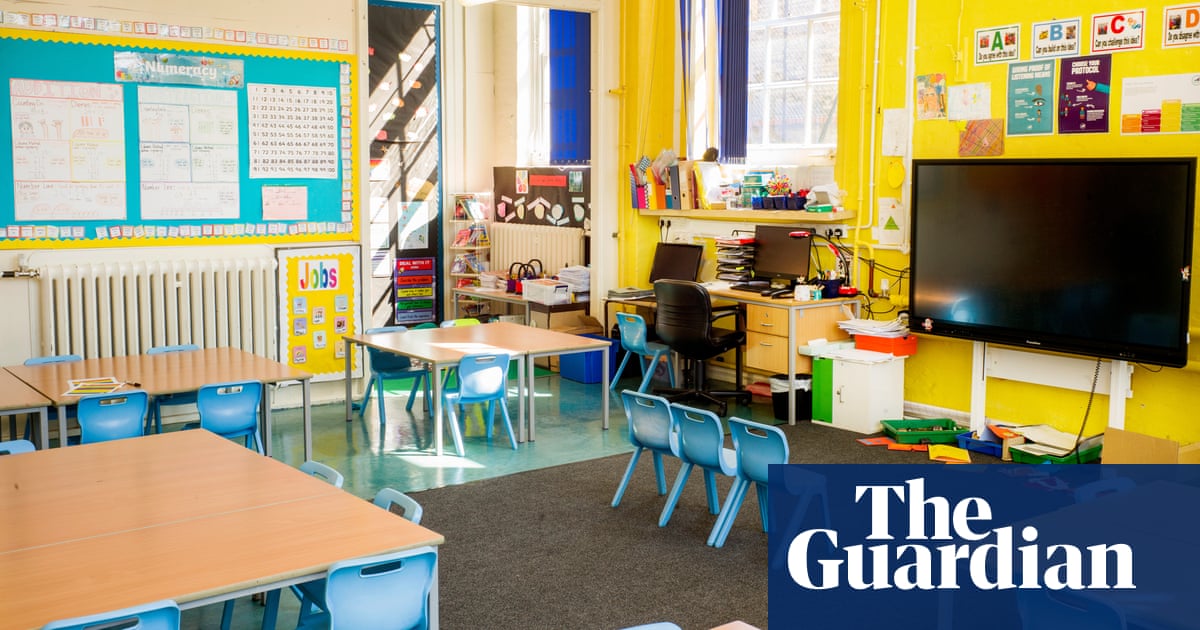Children in England could face the worst exam results in decades and a lifetime of lower earnings, according to research that blames failures to tackle the academic and social legacies of school closures during Covid.
The study funded by the Nuffield Foundation predicts that national GCSE results in key subjects will steadily worsen until 2030, when it expects fewer than 40% of pupils to get good grades in maths and English.
Lee Elliot Major, a professor of social mobility at Exeter University and one of the report’s co-authors, said: “Without a raft of equalising policies, the damaging legacy from Covid school closures will be felt by generations of pupils well into the next decade.”
The report recommends “low-cost” policies to improve results, such as recruiting undergraduates to work as tutors, and rebalancing the school year by shortening the summer break and spreading holidays more evenly throughout the year.
Pepe Di’Iasio, a former headteacher and the general secretary of the Association of School and College Leaders, said the research was “a devastating warning” of the risk of educational decline.
“The current government failed to rise to the challenge during and after the pandemic because its investment in education recovery fell woefully short of what was needed. The same mistake must not be made again, and ministers both now and in the future must invest in schools, colleges and teachers,” Di’Iasio said.
The work by academics at Exeter, Strathclyde and the London School of Economics is the first to gauge how the Covid-era school closures hindered children’s social and emotional skills as well as their skills in reading, writing and maths.
Last year, 45% of students taking GCSEs achieved grade 5s in English and maths, regarded as a “good pass” by the Department for Education (DfE). But the report expects the rate to continue falling below 40% by 2030, when children who were aged five at the time of school closures sit GCSEs.
The group concluded that the learning losses “will significantly damage the education prospects of five-year-olds at the time of Covid school closures”, and widen the existing “disadvantage gap” in exam results between disadvantaged children and their peers. It also calculates that the lower GCSE results could lead to lower lifetime earnings of £31bn for the generation.
“These results represent a double whammy to the educational progress for successive Covid generations: they are on course for the biggest overall decline in basic GCSE achievement for at least two decades, and a significant widening of the socio-economic gap in GCSE prospects,” the report states.
A spokesperson for the DfE said: “We have made almost £5bn available since 2020 for education recovery initiatives, which have supported millions of pupils in need of extra support.
“We are also supporting disadvantaged pupils through the pupil premium, which is rising to almost £2.9bn in 2024-25, the highest in cash terms since this funding began.
“This is on top of our ongoing £10m behaviour hubs programme and £9.5m for up to 7,800 schools and colleges to train a senior mental health lead.”
The DfE’s schools budget is just under £60bn this year. The pupil premium was introduced in 2011 as an annual payment to schools for each pupil eligible for free school meals, currently £1,480 for primary pupils and £1,050 for secondaries.
Esme Lillywhite, a researcher at the University of Strathclyde, said: “Compared with most other nations, England’s pandemic response was heavily focused on academic catch-up with less emphasis on socio-emotional skills, extracurricular support, and wellbeing.
“Much more could be gained by closer international collaboration to learn what approaches have been promising elsewhere.”







